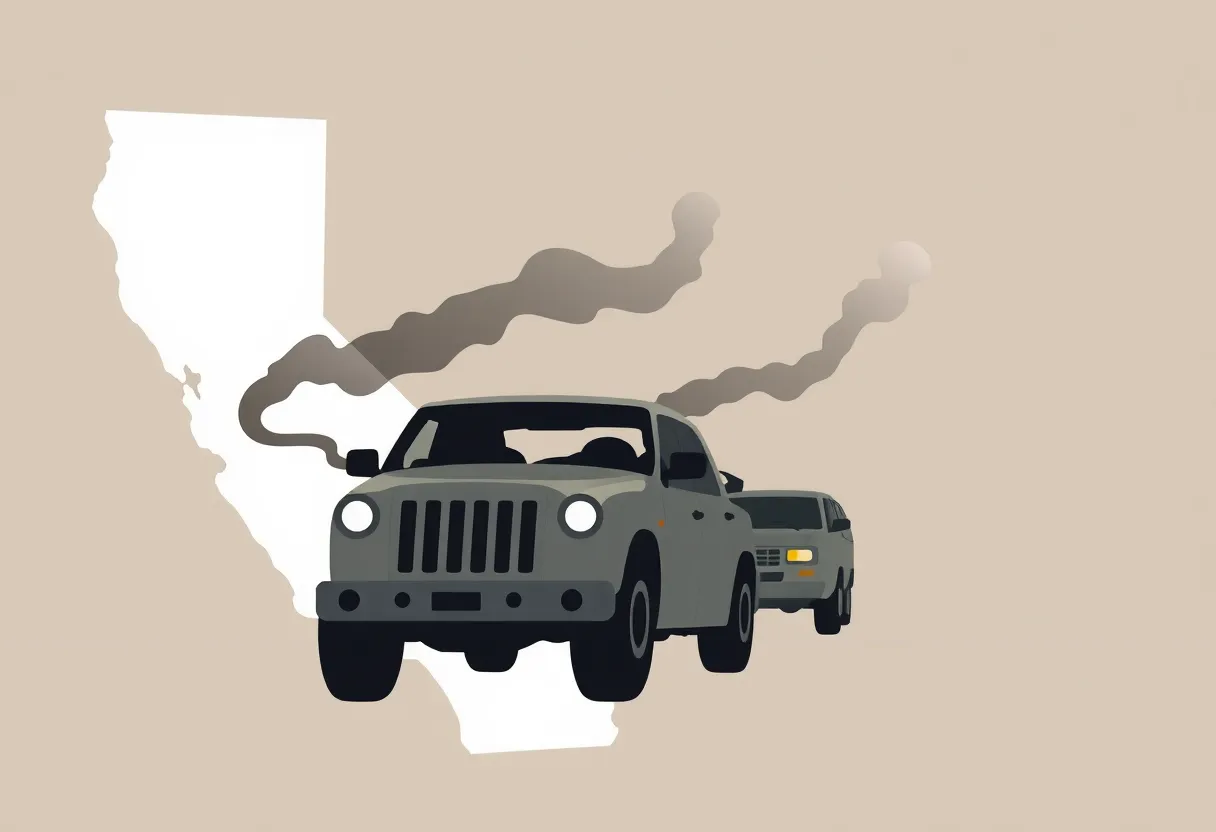News Summary
On May 22, 2025, the U.S. Senate voted 51-44 to revoke three vehicle emissions waivers granted to California, stirring legal and environmental controversy. The measures had allowed California to set stricter vehicle emissions standards than federal regulations. This decision, supported by some Democrats, has drawn strong opposition from environmental groups and has potential repercussions for other states following California’s lead. Governor Gavin Newsom plans to legally challenge the revocation, emphasizing its impact on pollution control and emissions goals.
California – The U.S. Senate voted 51-44 on May 22, 2025, to revoke three vehicle emissions waivers previously granted to California. This decision has ignited significant legal and environmental controversy, particularly because the waivers allowed the state to implement stricter vehicle emissions standards than those established by federal regulations.
Democratic Senator Elissa Slotkin of Michigan sided with the Republican majority to support the revocation, a move that Senate Minority Leader Chuck Schumer labeled as the “nuclear option.” The waivers that were repealed included specific provisions aimed at reducing tailpipe emissions from medium and heavy-duty vehicles and limiting smog pollution from trucks. Furthermore, the third waiver, commonly referred to as California’s “EV mandate,” aimed at phasing out gasoline-powered cars by 2035, thus requiring all new vehicle sales in the state to be zero emissions by 2035, with implementation commencing as early as 2026.
The authority for California to impose such stringent standards stems from the Clean Air Act, which allows the state to request waivers from the Environmental Protection Agency (EPA) that meet established criteria. These waivers had been approved by the Biden administration’s EPA in 2024, reflecting a commitment to aggressive climate policies.
Republican lawmakers argued that the Congressional Review Act (CRA) permits Congress to overturn federal agency rules through a simple majority vote, standing in opposition to concerns raised by government watchdogs regarding the legal basis for the Senate’s actions. Both the Government Accountability Office and the Senate parliamentarian determined that the waivers in question do not meet the CRA’s criteria for equivalency to rules that can be overturned.
Senate Majority Leader John Thune asserted that the waivers were considered rules submitted to Congress by the EPA. However, Senate Democrats have claimed that the revocation vote contravenes legal norms and could establish a dangerous precedent by contravening the parliamentarian’s recommendations and undermining the filibuster.
Environmental groups have reacted strongly to the Senate’s decision, arguing that it severely undermines California’s authority to combat pollution and enforce stricter regulations. The California Air Resources Board, which initiated the request for the waivers, reported that prior similar waivers had contributed to a remarkable 99% reduction in vehicle pollution since 1970.
Mary Nichols, a former chair of the California Air Resources Board, indicated that California will likely pursue legal action against the federal government if Congress proceeds with the revocation of the waivers. Governor Gavin Newsom has already expressed plans to challenge the Senate’s decision legally, asserting that the vote constitutes an illegal act and defies previous precedents.
The repercussions of the Senate’s decision are anticipated to extend beyond California, impacting the 16 other states and the District of Columbia that have adopted California’s vehicle standards. The auto industry has largely supported the revocation of the waivers, arguing that the state’s emissions rules could jeopardize jobs and have detrimental economic consequences for businesses relying on internal combustion engines.
Environmental advocates have raised concerns about the implications of utilizing the CRA to invalidate the waivers, cautioning that such a move could pave the way for future challenges to other executive actions. The Senate’s vote underscores a significant partisan divide, with Republicans expressing opposition to California’s ambitious climate policies, stating that they threaten consumer choice and the auto industry.
Historically, previous Republican leaders, including Nixon and Reagan, supported landmark environmental legislation, leading some experts to suggest that the current Senate action reflects a considerable ideological shift in the Republican Party. The CRA was originally designed to facilitate legislative intervention against federal regulations adopted late in a preceding administration; however, the application of the act in this instance has drawn scrutiny and contention from Democratic lawmakers.
As the political landscape continues to evolve, the bipartisan implications of this Senate vote are becoming increasingly pronounced, with Democrats warning that such a precedent could be leveraged for similar actions in the future should they regain legislative power.
Deeper Dive: News & Info About This Topic
- The Guardian
- Wikipedia: California Highway Patrol
- CBS News
- Google Search: California vehicle emissions standards
- Los Angeles Times
- Google Scholar: California car ban
- KRCR TV
- Encyclopedia Britannica: Vehicle emissions
- AP News
- Google News: California vehicle emissions revocation








